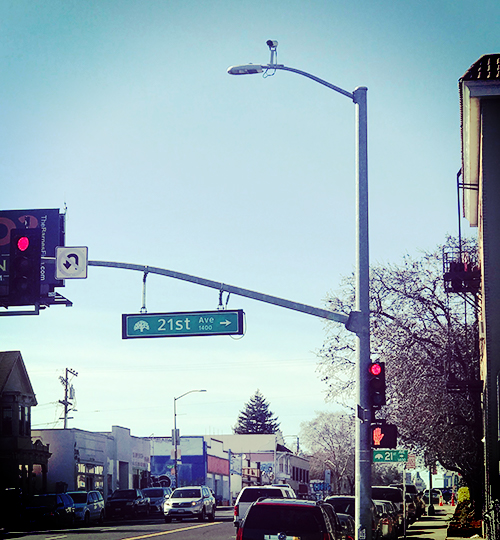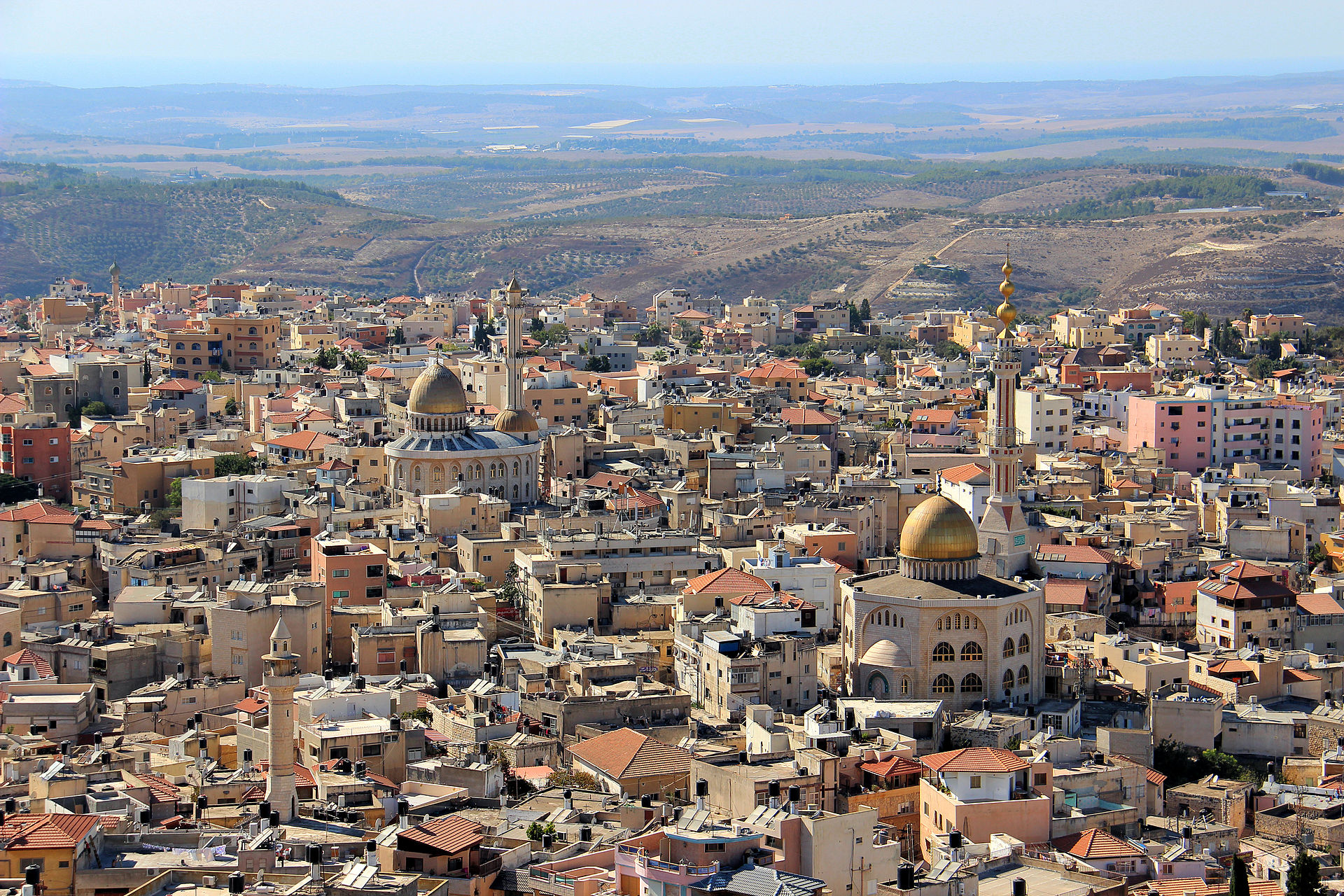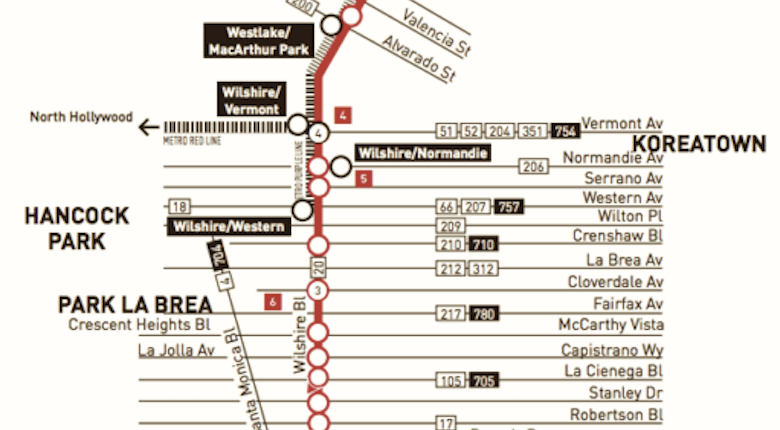By Nancy Silva
Published on January 30, 2019
To the left you will see an array
of vibrantly colored tents,
a rainbow lined up in the streets,
but there is no pot of gold here
Watch your step,
you are now walking into someone else’s living room.
To the right you will hear an invisible community
hip hop blasting on the streets,
drowning the sounds of people
hablando con si mismos. [1]
Populated by predominantly
black and brown males,
white females, and undocumented families.
Skid Row does not discriminate.
This tent city, welcomes all.
See, houseless-ness
Is like the common cold, anybody can catch it.
The mentally ill, veterans, addicts;
the unwanted from other districts
Greyhound therapy is prescribed
to those classified unworthy
by this money hungry society
one of the symptoms of poverty
yet, we still blame them.
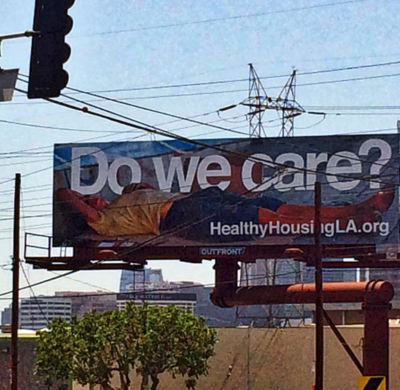
Individualizing the issue
politicians falsely describe residents as transients, outsiders;
“parasites” in our communities.
They don’t seem to understand
our less fortunate neighbors,
are long term residents,
in some cases natives,
who have been living on the streets
more than 5 years at least.
Parasites? Yet they tend to avoid
governmental assistance
they have felt the toll
of dehumanization before,
never again.
Are ya’ll on a field trip!?
One of the men asked
laughing as we walked by.
At BCH we explore social issues
that affect Los Angeles.
Prior to our visit to skid row,
we needed to get informed.
Through community asset mapping
We tried to take on a lens
we would never fully understand.
asking ourselves what we would need
if we were houseless;
free public restrooms? access to water?
food? mental health resources?
shelter?
Even then shelters are full
and many times unsafe.
Resources are scarce,
Rarely accessible,
and severely understaffed.
Chaperoning this trip
was me and two others.
We noticed our students getting agitated,
the constant feeling
of being a foreigner in their own community
had our youth wanting to leave.
We are privileged enough to step out
and forget what we saw.
We have never felt the eyes of,
people trying not to acknowledge our existence.
Privacy is bought here and people that are houseless
Cannot afford it.
Leaving left me feeling
Like we used this trip,
the people,
As a hot topic,
To discuss with our youth
“Look at how bad they have it,”
Like when you watch a sad movie
Then feel better after
Because you’re like wow I could be sadder
But the conversation that followed,
Was a youth led project
With knowledge that
Gentrification has overtaken
our neighborhoods.
The rents too damn high,
forcing locals to migrate,
displacing our communities.
Begging the question,
LA do we care?
The question pervaded my mind
Days had gone by and I
Did Not have an answer,
Yes people’s lives matter
Their circumstances shouldn’t define
their worth in our existence
All this rattled my brain
as I was waiting
Battling with the realities of humanity
I received a lesson on checking my underlying
privilege from a newfound friend
Charles’ smile was as radiant as Cali sunrays
His eyes were a different weather, gloomy
strained, they remained open,
Charles was tired
But his smile
Invited me in
To a distinct conversation.
He inquired
Where are you going young lady?
To which I answered,
I’m heading home, sir…
do you know where I wait for the red line?
He jubilantly replied
It’s your first time taking the train!
Come I’ll take you to the stop. …
I’m heading to Lancaster myself …
I got family up there,
maybe I’ll have more luck,
I’ve been traveling for a while.
My eyes widened and
I replied as happily and proudly as I could
I LOVE to travel
He looked at me,
perplexed,
eyebrow up, the other scrunched
as if I were deranged. And retorted
I HATE traveling!
Being on the move is not a privilege.
It has been a burden to me,
Constantly feeling like I don’t belong
and I’ve been there too long
I remembered my mom’s dicho [2],
“el muerto y el arrimado a los tres días apestan [3]”
Charles implied
You love traveling because you’ve had a choice
of where you moved and when.
Charles never told me he was houseless
but I knew he carried all of his possessions on his back,
and the weight
of feeling out of place
in the bags under his eyes.
Meanwhile I felt the blood race to my face
the heat travel from my feet to my head.
I was embarrassed, ashamed.
Charles saw my uncomfortable stance and assured me,
It’s about perspective. Safe travels!
[1] talking to themselves
[2] saying
[3] the freeloader and the dead, stink after the third day
Works Cited
- Farr, Rodger K. 1984. “The Los Angeles Skid Row Mental Health Project.” Psychosocial Rehabilitation Journal 8(2), 64-76.
- Fischer, Pamela J., Sam Shapiro, William R. Breakey, James C. Anthony, and Morton Kramer. 1986. “Mental health and social characteristics of the homeless: a survey of mission users,” American Journal of Public Health 76(5): 519-524.
***
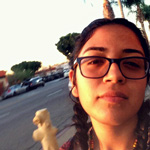 Nancy Silva Villalobos is a proud Chicana and first generation UCLA alumna. She majored in Gender Studies and minored in Civic Engagement. Her parents are from Jalisco Lindo, donde la tierra es roja y el sol sabroso. She is a brown, fierce, womanist who seeks to create dialogue and movements around expanding consciousness and education. She is a poet who strives to actively recognize her privilege as well as her oppressions. This has lead her to connect and engage with diverse people and inspired her to be a driving force for equity and self-liberation.]]>
Nancy Silva Villalobos is a proud Chicana and first generation UCLA alumna. She majored in Gender Studies and minored in Civic Engagement. Her parents are from Jalisco Lindo, donde la tierra es roja y el sol sabroso. She is a brown, fierce, womanist who seeks to create dialogue and movements around expanding consciousness and education. She is a poet who strives to actively recognize her privilege as well as her oppressions. This has lead her to connect and engage with diverse people and inspired her to be a driving force for equity and self-liberation.]]>
